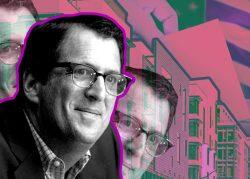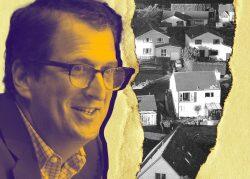A judge has allowed a lawsuit by landlords and Realtors over an apartment vacancy tax in San Francisco to proceed.
Superior Court Judge Charles Haines ruled last month that the lawsuit by the San Francisco Apartment Association and the San Francisco Association of Realtors challenging the city’s voter-approved tax on vacant homes can move forward, the San Francisco Standard reported.
Prop M, known as The Empty Homes Tax, was approved by 54.5 percent of San Francisco voters in 2022. The tax goes into effect in April 2025.
It was immediately challenged by landlords and real estate brokers who said it violates their constitutional rights to keep properties vacant.
Opponents of the pending law, including the Apartment Association and Association of Realtors, have engaged in a year-long legal tug-of-war with the City Attorney’s Office.
In his latest move, City Attorney David Chiu argued the lawsuit should be dismissed since the tax has yet to be collected — saying the courts have normally upheld a “pay first, litigate later” precedent when it comes to tax disputes.
Haines disagreed. In a Dec. 20 ruling, he allowed the suit to proceed and ordered Chiu’s office to respond to the plaintiffs’ legal arguments by Jan. 12.
The vacant homes tax, modeled on the commercial vacancy tax passed by voters in 2020, would only apply to buildings with three or more units that have been empty for longer than 182 days within a year.
The tax measure, championed by Supervisor Dean Preston, aims to nudge landlords to rent empty properties and push housing costs down by adding to the city’s housing supply.
Revenue from the tax would go to subsidize rents for seniors and low-income households and the development of affordable housing.
The tax charges property owners between $2,500 and $5,000 per vacant unit, depending on its size, during the first year. It rises to $20,000 by the third year for every unit that has been standing empty for longer than six months.
It doesn’t apply to single-family homes, leased properties or homes meant for short-term rentals.
A report by the Budget and Legislative Analyst’s Office estimated that 40,000 units sit empty in San Francisco, which has grappled with a housing shortage. But a 2022 report by the Controller’s Office estimated there were 4,000 units out of 7,000 longer-term vacancies potentially affected by the new tax, since not all of those units are for-rent.
The office estimated the tax would generate $9 million in its first year and $15.4 million by 2026.
— Dana Bartholomew
Read more



